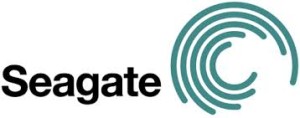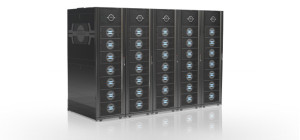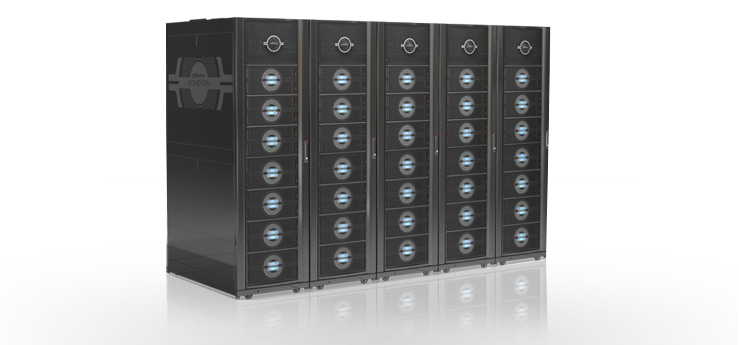 Today Seagate announced that four Cray customers in the government, weather, university and oil & gas sectors are using the latest Seagate high performance computing storage technology for their large-scale, data-intense applications. The customers — including the National Nuclear Security Administration (NNSA), Saudi Arabia-based King Abdullah University of Science and Technology (KAUST), Petroleum Geo-Services, and the U.K.’s Met Office— are using the Cray Sonexion 2000 system powered by Seagate storage technology based on Lustre 2.5. Combined, the implementations will comprise more than 120 petabytes of storage capacity.
Today Seagate announced that four Cray customers in the government, weather, university and oil & gas sectors are using the latest Seagate high performance computing storage technology for their large-scale, data-intense applications. The customers — including the National Nuclear Security Administration (NNSA), Saudi Arabia-based King Abdullah University of Science and Technology (KAUST), Petroleum Geo-Services, and the U.K.’s Met Office— are using the Cray Sonexion 2000 system powered by Seagate storage technology based on Lustre 2.5. Combined, the implementations will comprise more than 120 petabytes of storage capacity.
Combining Seagate’s high performance storage technologies with our expertise in building scalable architectures, the Cray Sonexion storage solution is the most productive parallel file system on the market today,” said Barry Bolding, Cray’s vice president of marketing and business development. “The Cray-Seagate partnership is helping expand the boundaries of what’s possible in large-scale, data-intensive computing, far beyond what we could have imagined just 10 years ago. This continued innovation using the Lustre open file system is helping assist data-intense applications critical to advancements in important industries around the world.”
 Powered by Seagate, the system integrates all aspects of hardware, software and support for the latest 2.5 version of the Lustre parallel file system. Key benefits of Lustre 2.5 include a client metadata performance improvement of up to 700 percent, as well as support for up to 16 billion files under a single file system. Lustre 2.5 also enables hierarchical storage management for easy data transfer between storage types and 1TB/sec performance — all critical features for organizations working to solve the world’s most complex data challenges.
Powered by Seagate, the system integrates all aspects of hardware, software and support for the latest 2.5 version of the Lustre parallel file system. Key benefits of Lustre 2.5 include a client metadata performance improvement of up to 700 percent, as well as support for up to 16 billion files under a single file system. Lustre 2.5 also enables hierarchical storage management for easy data transfer between storage types and 1TB/sec performance — all critical features for organizations working to solve the world’s most complex data challenges.
Data-intensive environments — from research institutions and laboratories to those increasingly found in the enterprise sector — require solutions that can accommodate their workflows and need for faster time-to-results in order to provide actionable information,” said Ken Claffey, vice president of ClusterStor, Seagate Cloud Systems and Solutions. “Our latest software releases incorporates enhancements like Lustre 2.5 and a range of new system management capabilities to complement and enhance our hardware storage solutions. These complete solutions allow Seagate and Cray to ensure that high-performance computing customers are deriving the most value from their systems at all times.”
For the NNSA, Lustre 2.5 will enhance the agency’s Trinity supercomputer, which runs the largest and most demanding simulations of the United States’ nuclear stockpile across all three of the NNSA’s national laboratories, including Los Alamos National Laboratory, Sandia National Laboratories and Lawrence Livermore National Laboratory. Powered by Seagate, the Cray Sonexion 2000 system provides Trinity with the necessary storage and compute capabilities needed for the simulations, which help maintain the safety, security and effectiveness of the U.S. nuclear deterrent without the use of underground testing.
Petroleum Geo-Services is a focused marine geophysical company providing a broad range of seismic and reservoir services, including acquisition, imaging, interpretation, and field evaluation. The PGS MultiClient data library is among the largest in the seismic industry, with modern 3D coverage in all significant offshore hydrocarbon provinces of the world. PGS operates on a worldwide basis with headquarters at Oslo, Norway. The new Cray XC40 supercomputer and Sonexion storage system, Powered by Seagate, will provide PGS with the advanced computational capabilities necessary to run highly complex seismic processing and imaging applications. These applications include imaging algorithms for the PGS Triton survey, which is the most advanced seismic imaging survey ever conducted in the deep waters of the Gulf of Mexico.
KAUST, a public research university based in Saudi Arabia, uses the new system as part of its high performance computing and computational research aimed at solving the world’s biggest water, food, energy and environmental challenges. With the Cray Sonexion 2000 system, KAUST gains a scalable platform with the performance capabilities and useable capacity necessary to support its large array of research applications.
As the United Kingdom’s national weather service, the Met Office relies on supercomputers to help gather and process data for its weather and climate forecasts, which are recognized among the most accurate in the world. The Cray Sonexion 2000 system, Powered by Seagate, provides the storage necessary for the Met Office’s operational weather prediction and climate research, which spans 60 locations and includes more than 10 million daily weather observations used to create 3,000 tailored forecasts and briefings.
Customers can learn more about Cray and Seagate by attending a webinar on April 23 at 10:00 am PT. This webinar will help customers learn about some of the considerations when deploying Lustre — from system selection to networking considerations. Cray and Seagate will co-present the concept of workflow-driven storage for big data and supercomputing, discuss the Sonexion 2000, and also present customer use cases for Lustre across a range of industries.




